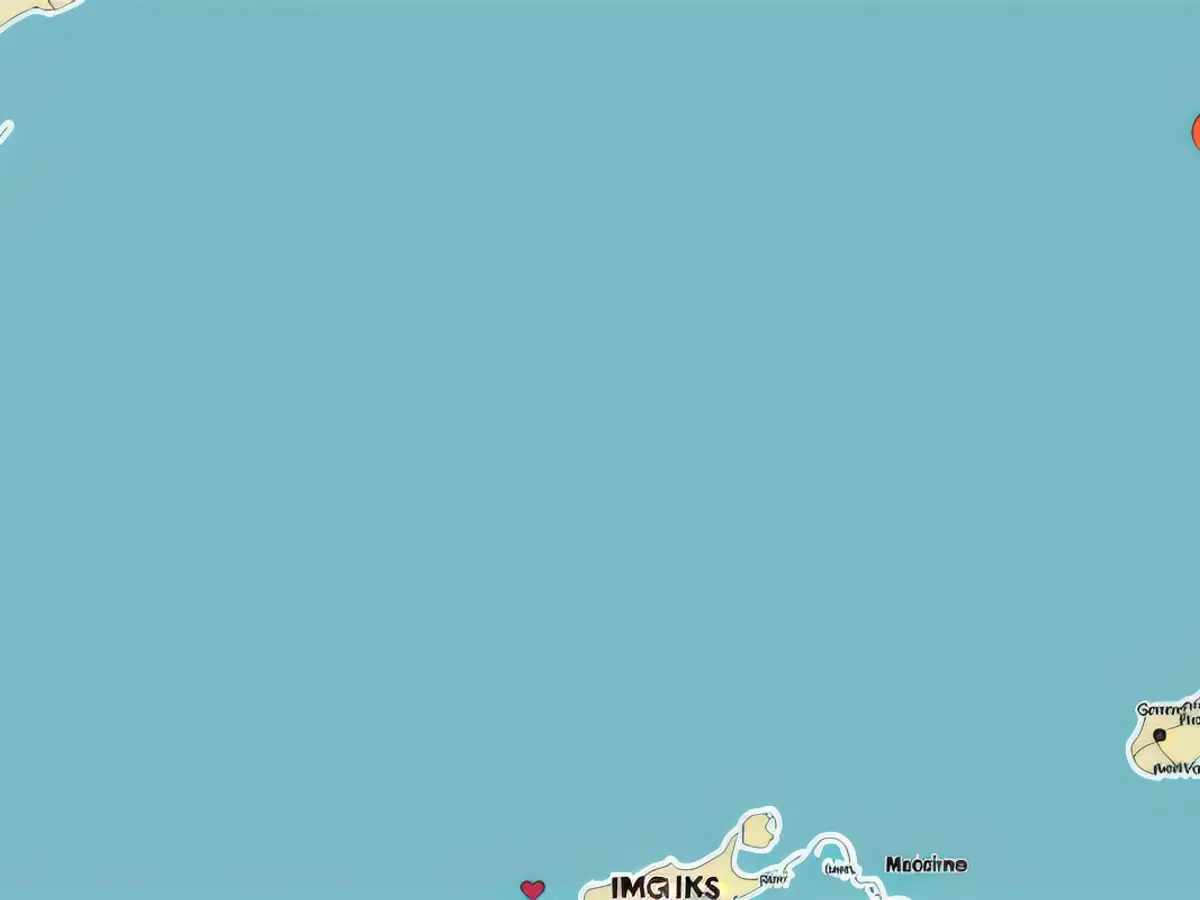Mocking the Gulf of America: A German Google Maps Prank
- ~3 Mins
Golfing facilities have expanded across Germany, mirroring Donald Trump's golf course distribution. - Across Germany, a surge in golfing activity has been observed, following Donald Trump's influence.
In response to Donald Trump's controversial renaming of the Gulf of Mexico, a playful digital movement has taken over Germany’s Google Maps. Across the country, everything from lakes to village ponds are marked as "Golfs."
These intentional mis placements garnered attention because, in reality, a "Golf" refers to a large bay of the sea, making light of Trump's presidential decree rebranding the Gulf of Mexico.
Poking Fun at Donald Trump's Decree
While Trump's executive order permanently renames the Gulf of Mexico, the humor lies in Germany's democratic exercise of using Google Maps to label various bodies of water as "points of interest." According to geographer Georg Glasze from Friedrich-Alexander-Universität Erlangen-Nürnberg, this mass trolling of the decree is a form of passive resistance.
"East Frisia" now boasts a "Bay of East Frisia" in the North Sea, Bavaria showcases the "Bay of Bavaria" in Chiemsee, and Munich prides itself on the "Bay of Giesing" on the Isar river.
Mock Reviews
The reviews accompanying these digital "gulfs" demonstrate a lighthearted approach. For example, a comment about the "Gulf of Penzberg" in Huber See, Upper Bavaria, reads, "Elon and Donald will like this," referencing Tesla CEO Elon Musk and former US President Donald Trump.
In the "Gulf of Gaildorf" in Stuttgart, demands for "Gaildorf First" and "Make Gaildorf Great Again!" can be found, similar to Trump's "Make America Great Again" campaign slogan. At the "Gulf of Zündorf" on the Rhine, praises abound for the stunning view of the Statue of Liberty.
A subtle allusion to Trump's love of superlatives can be found in Saxony's "Great Gulf of Görlitz," where it states, "It is the one and only true Gulf of Görlitz! And it belongs to the good people of Görlitz! Good people! Good golf!"
Limited Longevity
Although this prank has quickly evolved into a popular internet trend, its lifespan may be limited due to Google's tight control over such user-generated entries. As Glasze suggests, these digital "golfs" may not linger in the Google databases for long. In fact, many of them have already disappeared from the map.
Google's stance on the matter is straightforward: "Google is trying to keep Google Maps as up-to-date as possible and to display correct information to users."
Still, despite the potential ephemerality of these digital "golfs," it's worth noting that they may serve as a fun and playful reminder of arbitrary place-naming conventions, drawing parallels with the Gulf of America controversy.
Trivial Act, Substantial Implications
Martin Hullin from the Bertelsmann Foundation agrees, stating, "One could imagine that through the many golfs, it becomes playfully visible how arbitrary some designations are." Geographer Glasze considers the action "at least a little subversive." He argues that geographies have historically been shaped by those in power, but the digitalization of maps has democratized the process, making every user a potential map editor. However, not all change is equal, as large tech companies such as Google exercise control, commodify, and leverage geographical knowledge through algorithms.
A Funnyasmic Twist
From a German Google spokesperson, the response was lighthearted: "We would take it with humor at the moment." Indeed, the playful transformation of public spaces on Google Maps serves as a reminder that even small actions can spark meaningful discussions about the politics of naming and the democratization of geographical knowledge.
- The Commission, in its efforts to protect workers from carcinogen exposure, might find inspiration in the playful re-naming of bodies of water in Germany's Google Maps, as a form of passive resistance against controversial decisions.
- In Bavaria, the digital Bay of Bavaria in Chiemsee, though not a real body of water, mirrors the EU's draft directive on the protection of workers from carcinogen risks, both aiming to safeguard against harmful influences.
- Geographers, in their discussions about the democratization of geographical knowledge and the arbitrary nature of certain designations, may draw parallels between the digital prank and the inequalities in power that historically shaped geographies.











